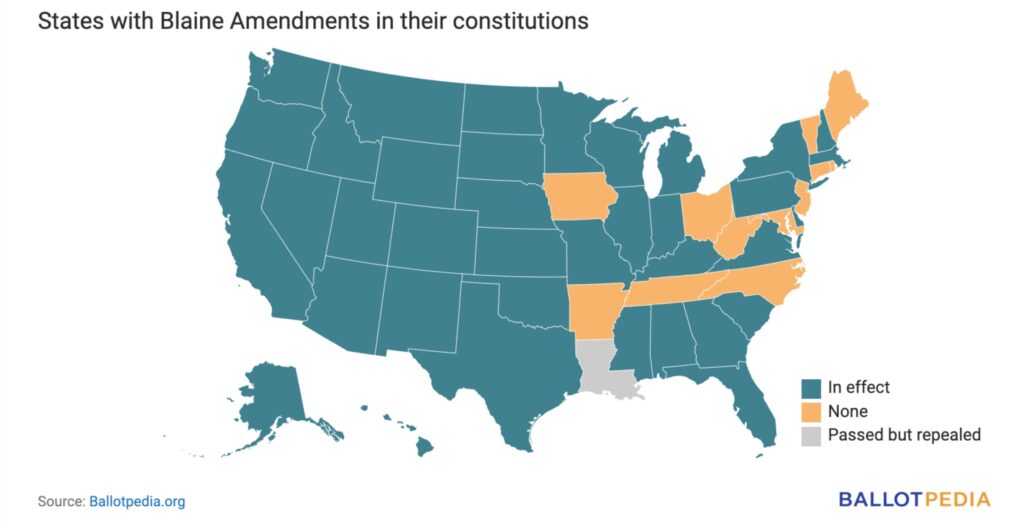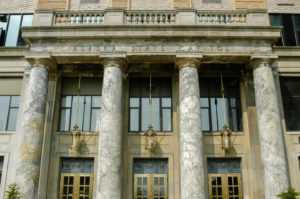The Geography of School Choice Part V: The law of the land
While power politics and progressive teachers’ unions are found in every state, one legal hurdle for school choice is especially common in western states: the Blaine Amendment.
Proposed in 1875…

While power politics and progressive teachers’ unions are found in every state, one legal hurdle for school choice is especially common in western states: the Blaine Amendment.
Proposed in 1875 by U.S. Senator James G. Blaine, the constitutional amendment was motivated by anti-Catholic and anti-immigrant sentiments.
“The 19th century common schools, public schools [were] very much Protestant,” Sarah Montalbano, the education policy analyst for Alaska Policy Forum, told The Lion. “[Catholics] tried to establish their own schools as public schools and receive direct public funding for them and they weren’t able to.”
To prevent Catholic immigrants from receiving education funds, Blaine proposed his amendment to the U.S. Constitution to the effect that public money had to go to public schools.
His attempt failed, but various versions of the amendment made their way into 37 state constitutions.
“Alaka and I think many other western states were forced to basically adopt as a condition of statehood something called a Blaine amendment in their state constitutions,” added Montalbano.
The map from Ballotpedia (above) shows Blaine’s universal dominance in western states. Now, anti-school choice groups frequently use Blaine Amendments to argue against statewide education freedom programs.
Notably, Iowa, Arkansas, West Virginia and Ohio – four of the states with universal school choice programs – lack Blaine Amendments.
However, recent Supreme Court rulings have loosened Blaine’s grip on education funds.
In the case of Espinoza v. Montana Department of Revenue in 2020, parents had wanted to use Montana’s tax-credit scholarship to send their children to private, Christian schools but were denied, but the Supreme Court ruled that Montana’s Blaine Amendment discriminated unconstitutionally against religious groups.
“Once you decide to subsize private education, you can’t discriminate based on religious status,” summarized Montalbano.
A similar ruling in Carson v. Makin in 2021 struck at the Blaine Amendment in Maine.
Those rulings do less for Alaska, where the Blaine Amendment specifically prohibits the government from funding private schools regardless of religious affiliation.
“Pretty much every other western state I’ve seen has had [their Blaine Amendment] nullified, so Alaska’s a very special case,” explained Montalbano.
Chris Cargill, president and CEO of the Mountain States Policy Center, told The Lion he doesn’t think Blaine will be a major obstacle going forward.
“I don’t necessarily think [Blaine] is what’s preventing the advancement of school choice,” Cargill said. “I think what’s preventing the advancement of more choice options is just the unease with the unknown as well as the fact that there are two sectors of this. There are the folks who want to go slow and steady and then there are the folks who want to have the Arizona model put in place tomorrow.”



